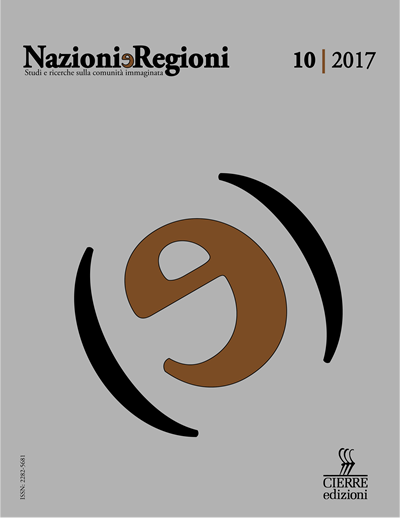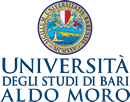Note di lettura sulla costituzione delle identità territoriali in Belgio
DOI:
https://doi.org/10.15162/2282-5681/1451Riferimenti bibliografici
De Smaele H. (2009), Rechts Vlaanderen Religie en stemgedrag in negentiende-eeuws België, Universitaire Pers, Leuven.
Dubois S. (2005), L’invention de la nation belge. Genèse d’un État-nation, Racines, Bruxelles.
Morelli A. (éd.) (1995), Les grands mythes de l’histoire de Belgique, de Flandre et de Wallonie, Éditions Ouvrières, Bruxelles.
Palmer R. R. (2014), The Age of Democratic Revolution. A Political History of Europe and America 1760-1800, Princeton University Press, Princeton [ed. or. 1959 e 1964].
Pécout G. (2009), « L’État éducateur politique dans les campagnes du dix-neuvième siècle: Lectures franco-méditerranéennes d’Eugen Weber », French Politics, Culture & Society, vol. 27, n. 2, pp. 127-141.
Strikwerda C. J. (1997), A House Divided: Catholics, Socialists, and Flemish nationalists in nineteenth-century Belgium, Rowman & Littlefield, Lanham.
Thompson E. P. (1968), The Making of the English Working Class, Penguin, Harmondsworth [ed. or. 1963].
Van Ginderachter M. (2005), Het rode vaderland. De vergeten geschiedenis van de communautaire spanningen in het Belgische socialisme voor WOI, Lannoo, Tielt.
Van Ginderachter M. (2009), «Het vaderland vanuit kikkerperspectief. Recent Belgisch en Nederlands onderzoek naar natievorming tijdens de lange negentiende eeuw», Tijdschrift voor Geschiedenis, vol. 122, n. 4, pp. 522-537.
Weber E. (1989), Da contadini a francesi: la modernizzazione della Francia rurale, 1870-1914, trad. it. di A. Prandi, Il Mulino, Bologna, 1989 [ed. or. 1976].
Downloads
Pubblicato
Fascicolo
Sezione
Licenza
Nazioni e regioni è una rivista open access che applica la licenza Creative Commons CC BY-NC-ND 4.0 a tutti i contenuti pubblicati.
Nazioni e regioni is an open-access journal that applies the Creative Commons CC BY-NC-ND 4.0 licence to all published contents.







